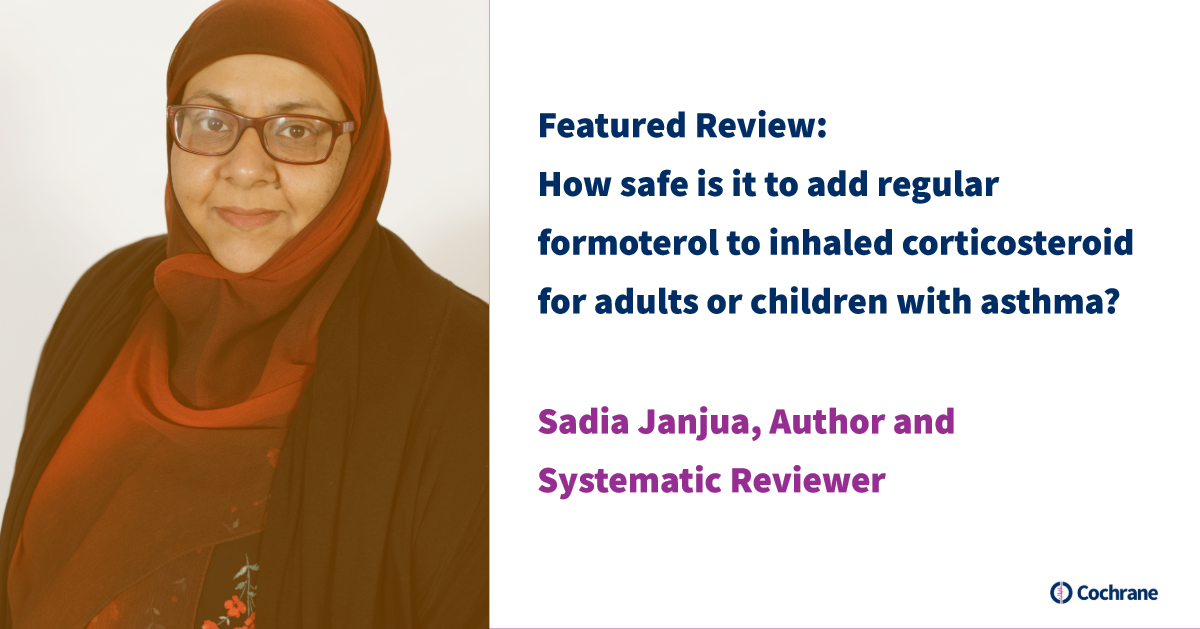
Asthma is a disease of the lungs, symptoms include wheezing, breathlessness, and chest tightness.
Two main features of asthma are underlying inflammation and bronchoconstriction (tightening of the muscles around small tubes in the lungs). The inflammation can be treated with daily steroid inhalers. The bronchoconstriction can be treated with a beta2-agonist to relax the muscles. This opens up the airways and makes it easier to breathe. Beta2-agonists can be used two ways: to provide relief from symptoms of chest tightness ('short-acting beta2-agonists') and to help prevent symptoms from occurring ('long-acting beta2-agonists', or LABAs).
When asthma is not controlled by daily low-dose ICS, many asthma guidelines recommend additional daily LABA, such as formoterol. The author team are confident that LABA improves lung function, quality of life, and worsening symptoms such as shortness of breath, wheezing, coughing and chest tightness. However, there is long-standing controversy about how safe these drugs are for people with asthma. The review authors wanted to explore this by focusing on rare and serious harms. These are defined as events that are life-threatening, require admission to hospital or by making stays in hospital longer, or result in persistent or significant disability/incapacity or a birth defect.

The review author team analysed data from 29 studies in 35,751 adults and 10 studies in 4,035 children aged up to 17 years.
Importantly, almost all trials were sponsored by drug manufacturers.
Thirty deaths were reported in 35,751 adults. Seventeen of these deaths were reported in participants taking formoterol and ICS, and 13 deaths in participants who were taking ICS alone. Three deaths reported in adults taking formoterol and ICS were due to asthma, but there were no asthma-related deaths with ICS alone. No deaths were reported in children up to 17 years age.
The number of people experiencing serious harms of any cause was similar in adults with and without formoterol. Although there was no difference in the risk of serious harms in adults with asthma who were taking regular formoterol in combination with ICS, we could not confirm whether taking formoterol in addition to ICS reduced or increased the risk of events compared to taking ICS alone.
The review authors were moderately certain regarding the data in adults, but less certain about the effects of adding formoterol to ICS in children. Given the low number of deaths that occurred in the studies, they do not yet have enough information to be able to measure accurately the risk of adding formoterol to ICS on number of deaths.
The review authors were not able to state confidently that taking formoterol in addition to ICS carried no risk of increasing the number of deaths in comparison with ICS alone. On the other hand, they found no conclusive evidence of an increase in serious harm. Three asthma-related deaths occurred in a total of 12,777 adults treated with formoterol in combination with ICS. There was no conclusive evidence of risk of non-fatal serious harms attributed to asthma when formoterol was combined with ICS in adults.
